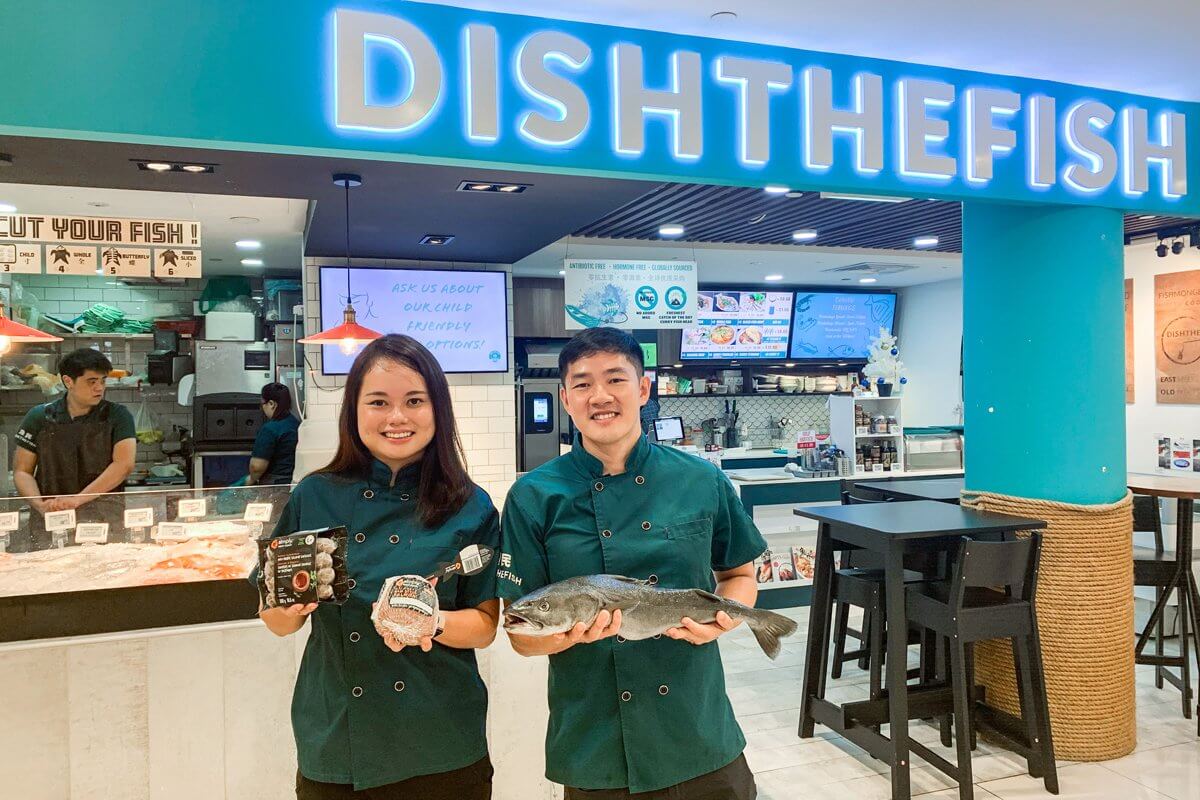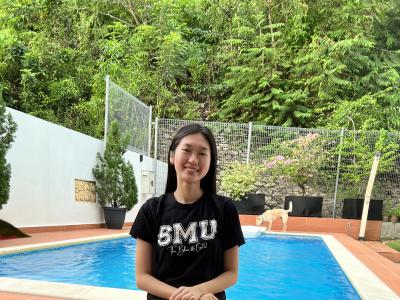
To say fishmongering is a sunset industry is no understatement. After all, who wants to toil at the wet market and reek of raw fish all day? But there’s something fishy going on online. Through technology, SMU alumni and husband-and-wife team, Jeffrey and Angeline Ong, founders of Dishthefish, are changing the way we shop for fish.
Complemented by their two brick-and-mortar outlets—Tiong Bahru Market and West Coast Plaza—their convenient e-commerce service promises to have your fish freshly delivered right at your doorstep as quick as the very next day.
As an alumnus of Singapore Management University’s (SMU) School of Information Systems, Jeffrey’s expertise has been key to finding and implementing IT solutions to bolster their business needs. “Using cloud systems was what he wanted since day one, and he was the one who looked for solutions for our business,” recalls Angeline, an alumna of the SMU School of Accountancy. Thanks to the cloud, they have access to their POS details at any time, which allows them to sync up the e-retail and the physical retail business. This makes it much easier to monitor available stocks without having to physically visit the retail outlets.
The couple has harnessed digital tools in other ways as well, such as to better understand the needs of their e-commerce customers. Angeline also observes that online customers tend to need reminders about their presence via constant social media and email communications, but this is less of a problem for brick-and-mortar stores as they already have a physical presence.
Online customers, she notices, also tend to be specific when they search and shop, so it’s important to have clear and precise product names and descriptions. That explains why all their products are painstakingly labelled in multiple languages, including English, Mandarin, Malay, and dialect.
Providing e-commerce and possessing nifty digital tools are not all there is to running a successful modern fishmongering business. Careful attention also needs to be paid to the offline elements. For instance, all orders are cleanly vacuum-packed and delivered in a cold truck to ensure freshness. They also go the extra mile by allowing customers to request specific cutting styles including steak cut, fillet, sliced or butterfly. On top of all that, they also appeal to the environmentally-conscious customers as they handpick seafood that are sustainably wild-caught or responsibly harvested.
Says Angeline: “We started Dishthefish with the aim of being accessible to everyone who wants to eat good quality fish. The keyword about our business is ‘confidence’—we wanted to provide assurance and confidence to our customers and everything we’ve done is to that end.”
While her husband mostly handles product sourcing and physical retail operations, Angeline is in-charge of back-end operations and marketing. Thanks to her university training, she is able to make decisions using her accounting principles and analytics, so that every choice is backed by actual numbers and precedence, and costly mistakes are minimised.
Ultimately, you have to think like the customer, she says. That’s why the website comes with a blog where consumers can learn more about the fish they are buying, and pick up cooking tips and recipes. Even the location of their West Coast Plaza outlet was selected with the customer in mind, as they aim to be easily accessible to people who don’t have time to run to the market every day due to work, yet prefer to inspect their fish physically before buying.
“They can self-collect their orders, try out our fish, take-away some fish home, see how their fish is prepared and cut, ask us questions, etc. Many of our customers who started out just eating at the cooking studio in this outlet have converted to retail and even became online customers. Each of our sales avenues works together to achieve our over-arching sales strategy,” she explains.
Eventually, the long-term vision is to scale the business such that it can serve overseas markets after creating a system here that can be replicated across Asia, with tweaks according to local tastes and preferences.
When asked about a tip for other entrepreneurs looking to digitalise a traditional business, Angeline recalls how their idea of modernising the traditional trade of fishmongering was often met with scepticism in the early days.
“We overcame them by always asking ourselves what is the ultimate need that we are trying to address, and it is to trust and have confidence that we are providing seafood that is good for you. It is actually harder than it looks to change consumer behaviours and mindsets. Sometimes, all the homework done will not prepare you enough for what consumers eventually think and feel when they see your concept. Don’t be afraid of tweaking and taking calculated risks,” she says.



